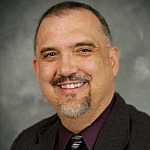
Quotes by Tom Ascol
The dreadfulness of hell deepens our grateful praise for the salvation we have in Jesus Christ. Hell is what we deserve. And hell is what He experienced on the cross in our place.
The Horror of Hell, Tabletalk, October 2008, p. 55. Used by Permission of Ligonier Ministries.
The punishment must fit the crime. The misery and torment of hell point to the wickedness and seriousness of sin. Those who protest the biblical doctrine of hell as being excessive betray their inadequate comprehension of the sinfulness of sin. For sinners to be consigned to anything less than the horrors of eternal punishment would be a miscarriage of justice.
The Horror of Hell, Tabletalk, October 2008, p. 55. Used by Permission of Ligonier Ministries.
How can God exact infinite punishment for a finite sin? First, because the person against whom all sin is committed is infinite. Crimes against the infinitely holy, infinitely kind, infinitely good, and infinitely supreme Ruler of the world deserve unending punishment. In addition to that, those condemned to hell will go on sinning for eternity. There is no repentance in hell. So the punishment will continue as long as the sinning does.
The Horror of Hell, Tabletalk, October 2008, p. 55. Used by Permission of Ligonier Ministries.
This does not mean that God will be completely absent from hell. He is and will remain omnipresent (Ps. 139:7-8). To be separated from the Lord and cast into hell does not mean that a person will finally be free of God. That person will remain eternally accountable to Him. He will remain Lord over the person’s existence. But in hell, a person will be forever separated from God in His kindness, mercy, grace, and goodness. He will be consigned to deal with Him in His holy wrath.
The Horror of Hell, Tabletalk, October 2008, p. 55. Used by Permission of Ligonier Ministries.
Self-deception is an insidious condition. You will never meet a person who knows he is self-deceived. By definition, those ensnared are completely unaware that they are.
The greatest theologians in the history of the church have been faithful pastors. And the greatest pastors in the history of the church have been careful theologians. Obviously the names appearing on both lists (with rare exceptions) are the same. Augustine, Luther, Calvin, Gill, Edwards, Fuller, Spurgeon, and Lloyd-Jones were pastor-theologians. They were men who took the apostolic qualifications for elders seriously and, in fulfillment of their calling to shepherd God’s people, faithfully gave themselves to the work of theology.
The Christian life is a war, and the fiercest battles are those that rage within the heart of every believer. The new birth radically and permanently changes a person’s sinful nature, but it does not immediately liberate that nature from all of the remnants of sin. Birth is followed by growth, and that growth involves warfare.
Jesus teaches us that there is something far more fundamental to our sinfulness than the actual sins we commit. Our sins do not make us sinful. Rather, we commit sins because at the very center of our lives, we are sinful. Sin has invaded the inner recesses of our personalities.
